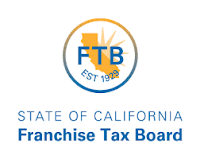The California Franchise Tax Board ("FTB") has ruled that certain types of installment sale transactions that have been "structured" or "drafted" pursuant to Section 453 of the Internal Revenue Code ("Code") and have been promoted and used to "save" failed 1031 Exchange transactions will not qualify for tax-deferred treatment in California when used in this manner.
California FTB is Aware of Certain Installment Arrangements
The FTB is aware of certain arrangements in which a 1031 Exchange investor and/or Qualified Intermediary attempt to convert proceeds from the sale of the investor's relinquished property that is part of a failed 1031 Exchange, or any unused proceeds from a partial 1031 Exchange, into an installment arrangement such as an installment note or other similar arrangement in which payments are to be paid out over two or more years.
It was made clear by the FTB that these arrangements do not qualify for a deferral of gain recognition under
Sections 453 or 1031 of the Code since, among other reasons, these sections and the federal doctrine of constructive receipt do not support such a deferral of gain recognition.
These tax-deferred installment sale transaction structures have been promoted under various names over the years, including Private Annuity Trusts, Deferred Sales Trusts, Monetized Installment Sales, Self-Directed Installment Notes, among others.
Qualified Intermediaries Put On Notice
1031 Exchange
Qualified Intermediaries must withhold and remit certain amounts to the California FTB when a 1031 Exchange either fully or partially fails. Qualified Intermediaries were put on notice by the California FTB through the issuance of California FTB
Notice 2019-05 dated September 24, 2019. This notice was issued specifically to let Qualified Intermediaries know that the California FTB will impose failure to withhold penalties against the Qualified Intermediaries who actively participate in these installment sale transactions where boot or proceeds from a failed 1031 Exchange are converted into an installment sale or note or similar arrangement in which payments are to be paid out over two or more years.
Investor and Qualified Intermediary Beware
It is critical that investors have both their legal and tax advisors review any real estate transaction structure before proceeding, especially in cases where there is no guidance from the Internal Revenue Service and/or state taxing authorities. Interest and penalties can be devastating, so it is important that the investor knows and understands the risks involved with such transaction structures.





